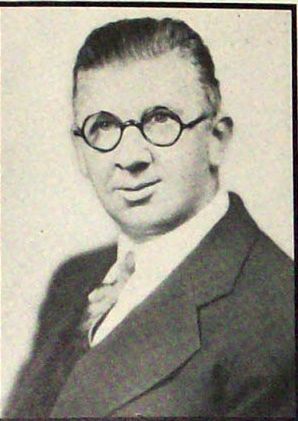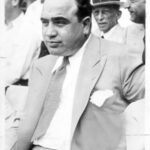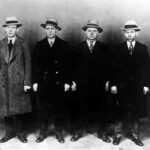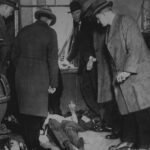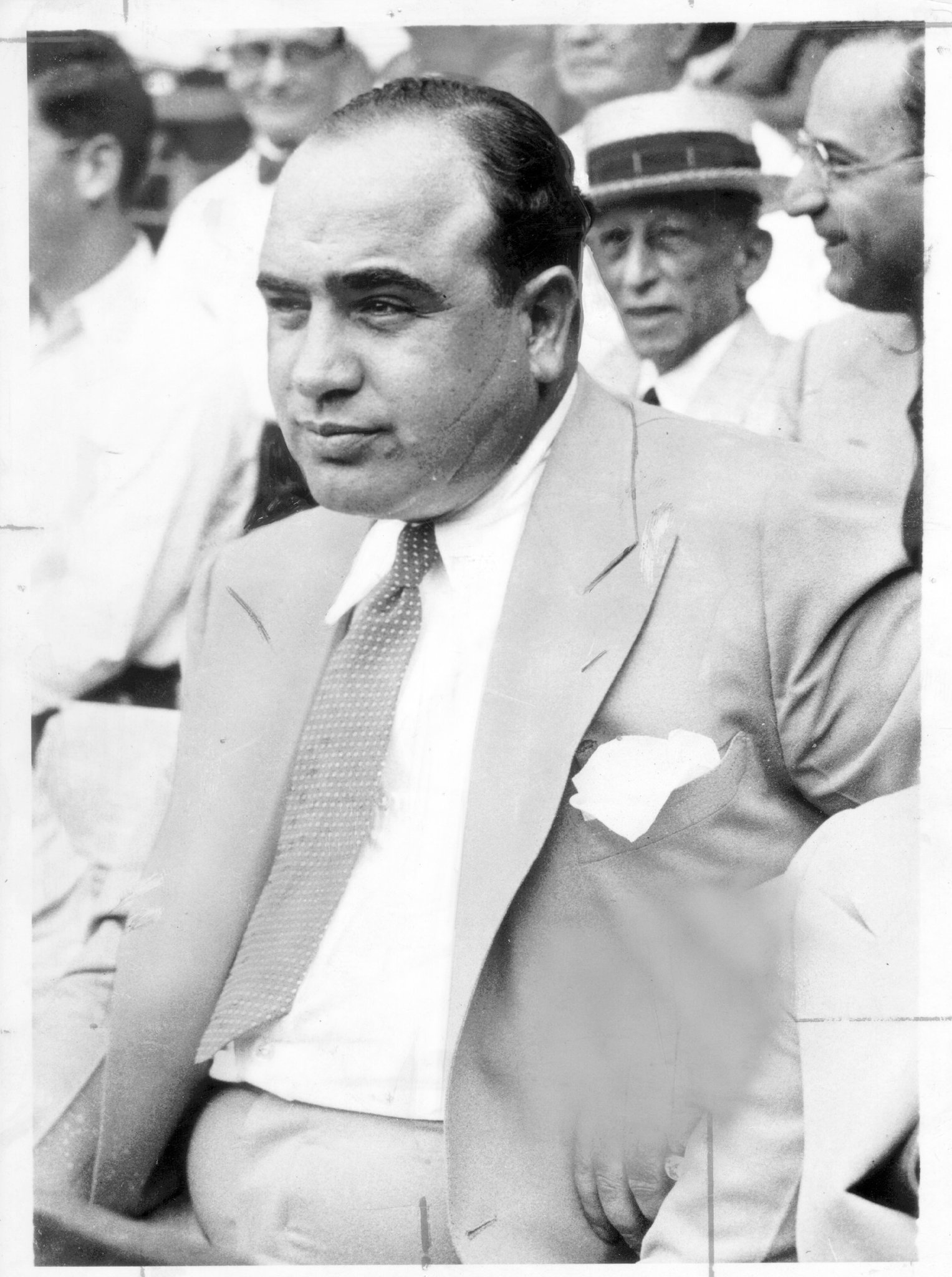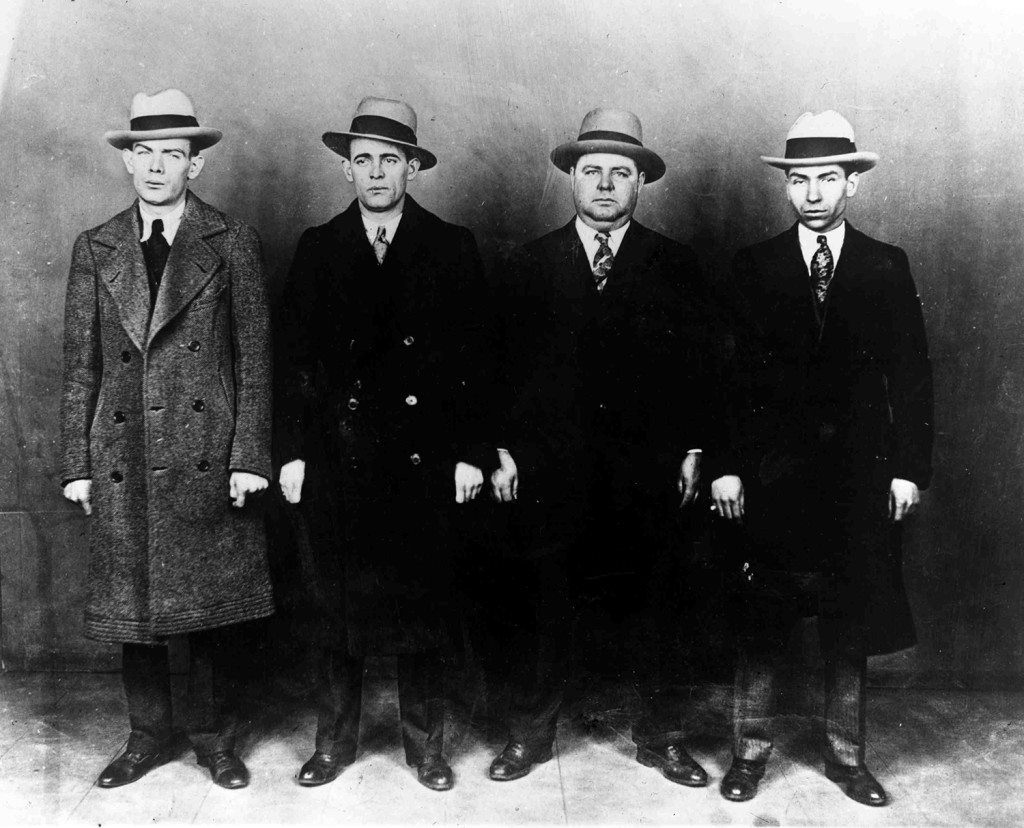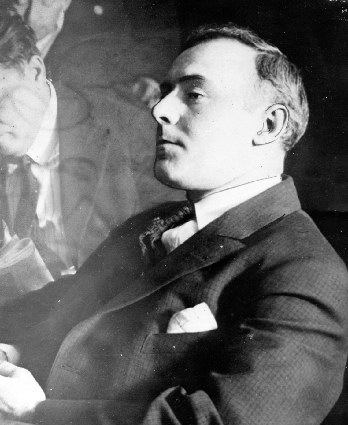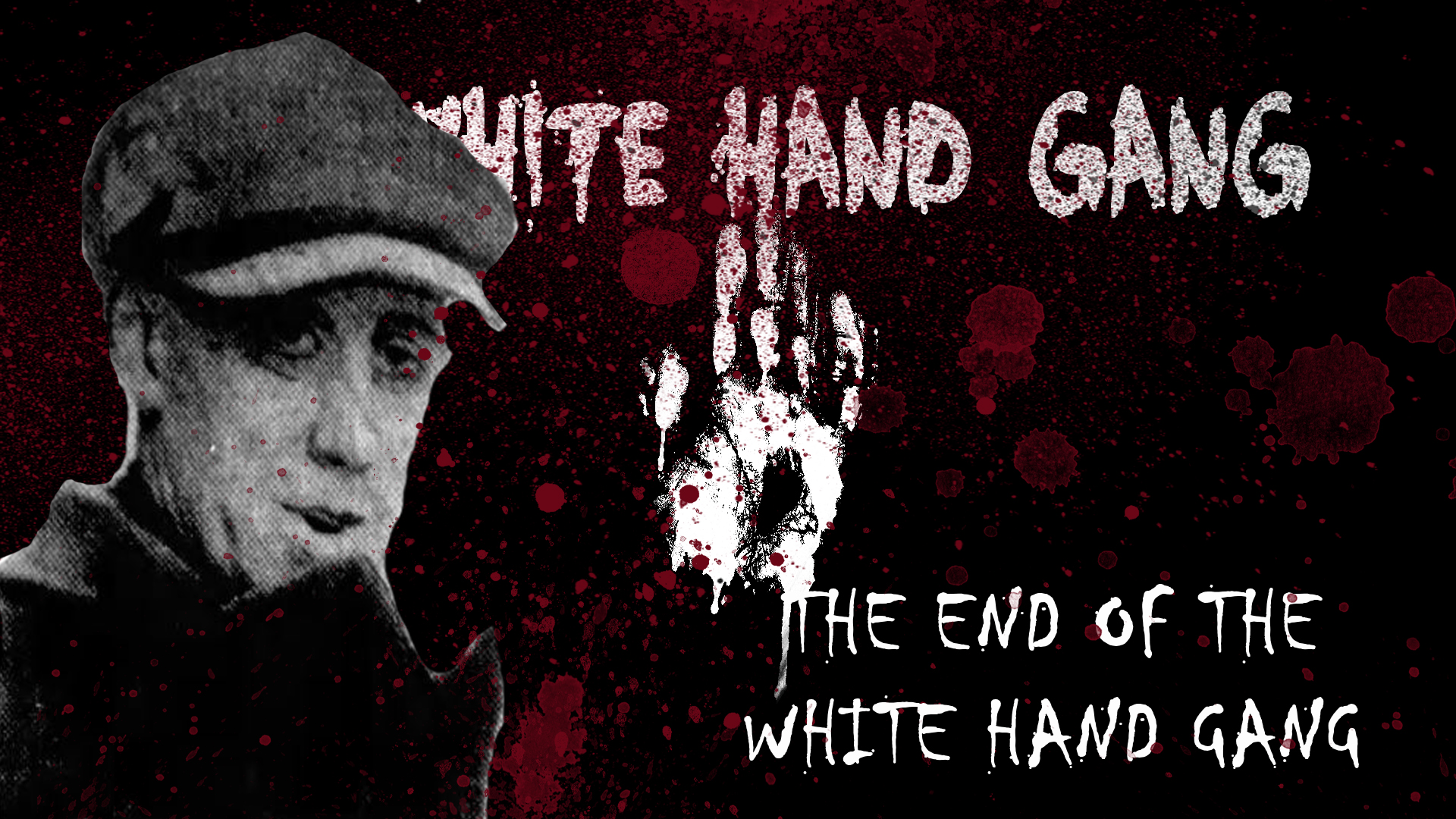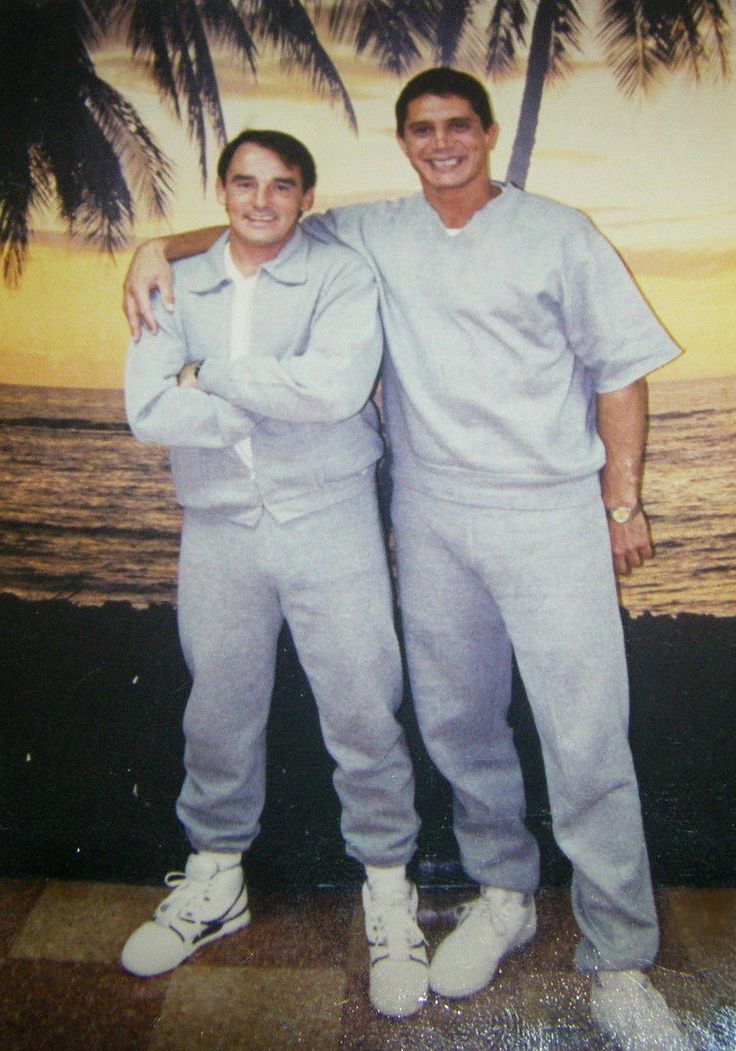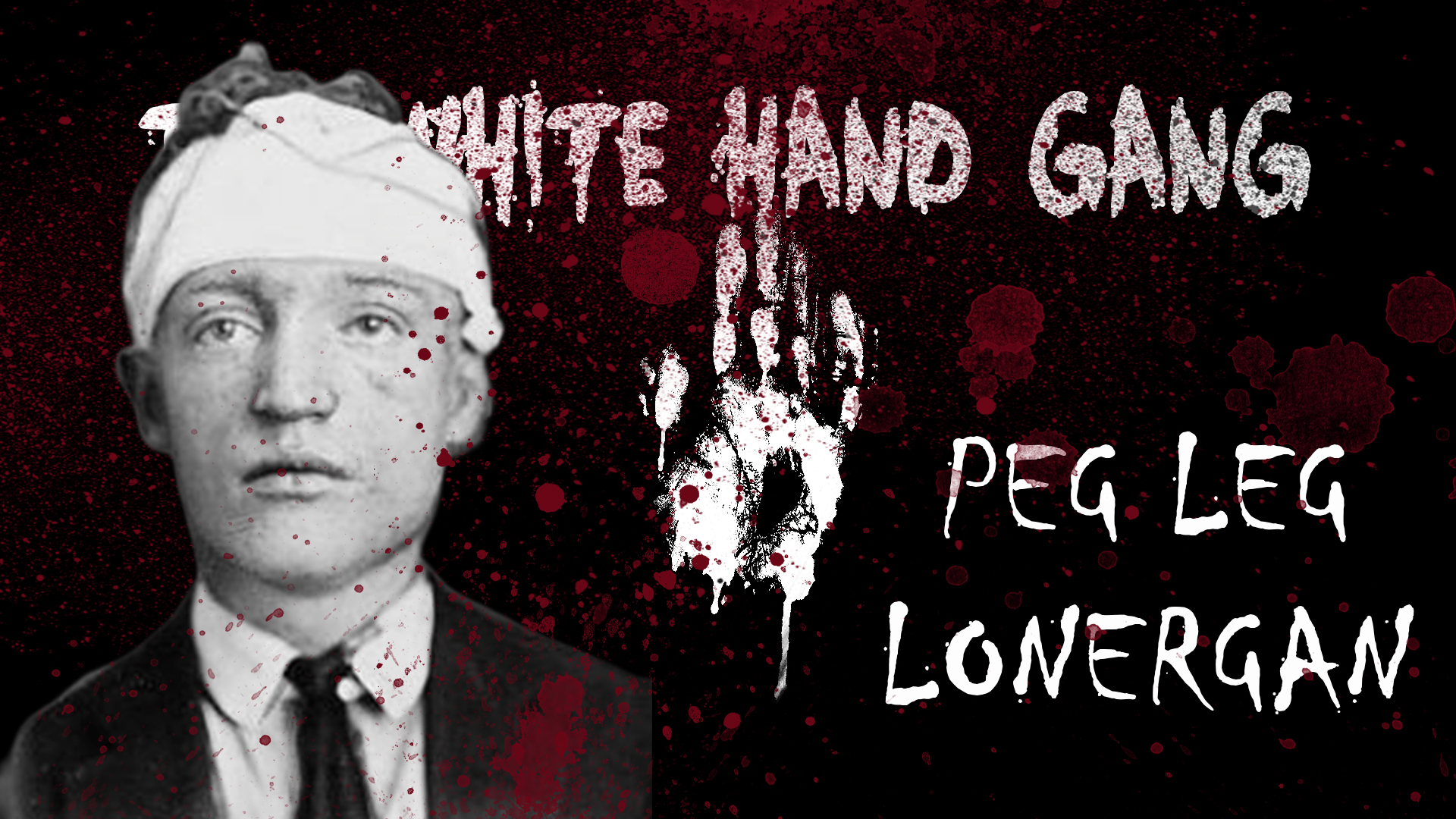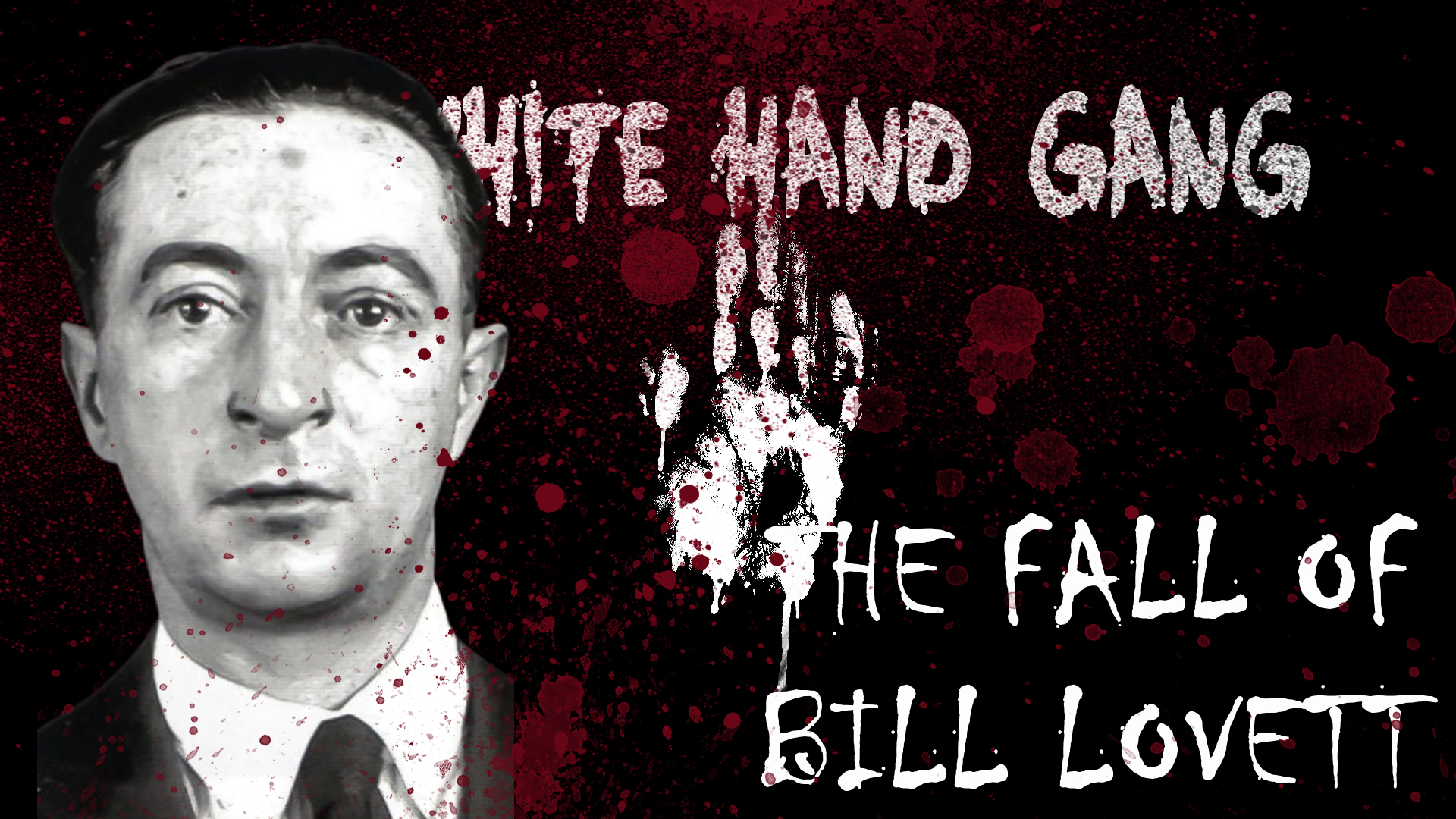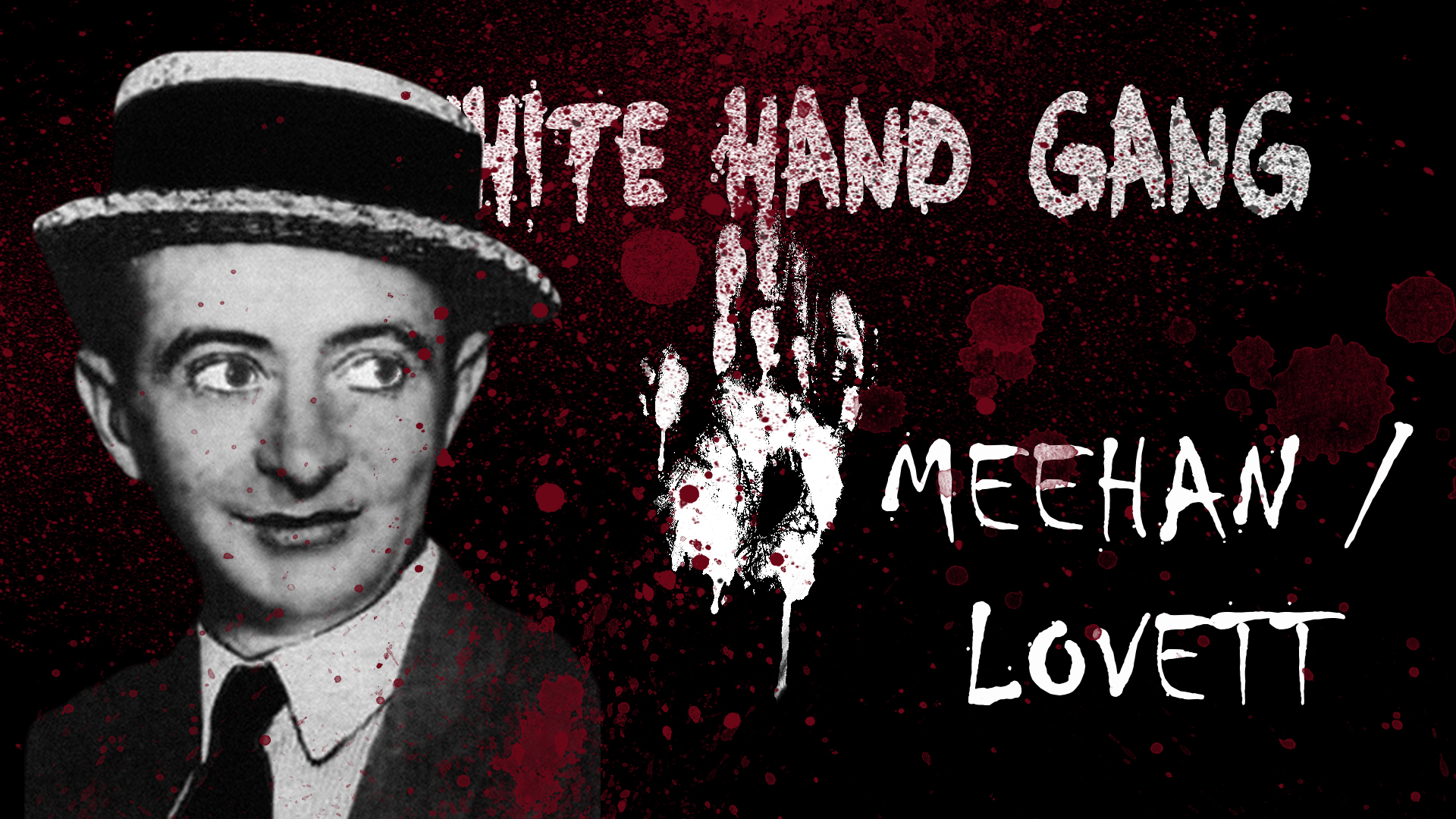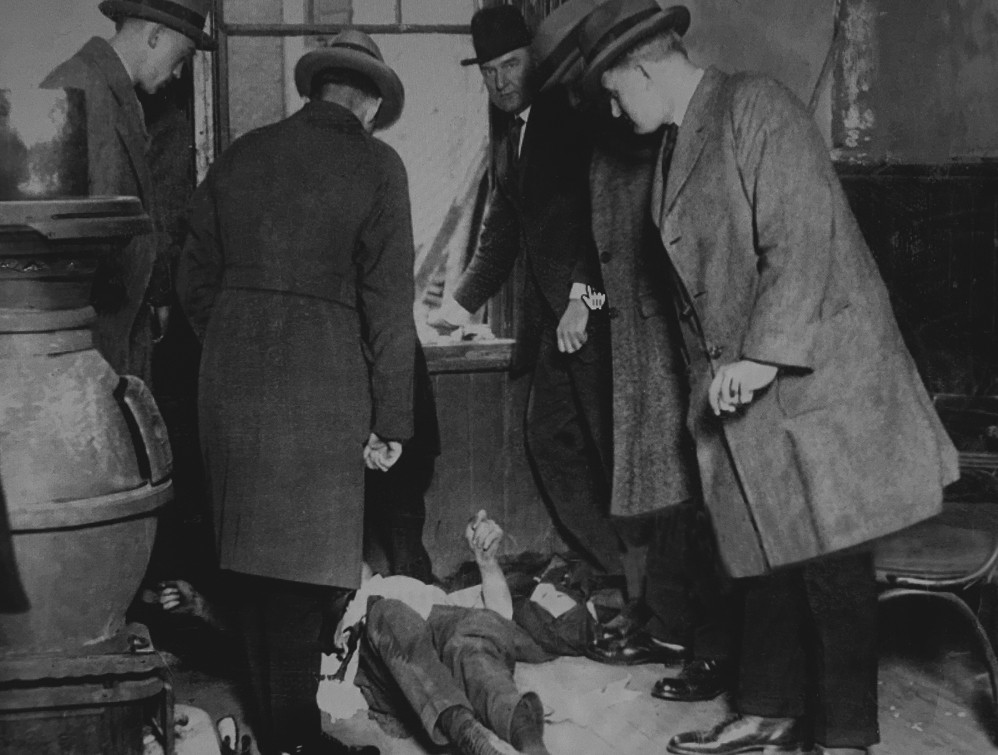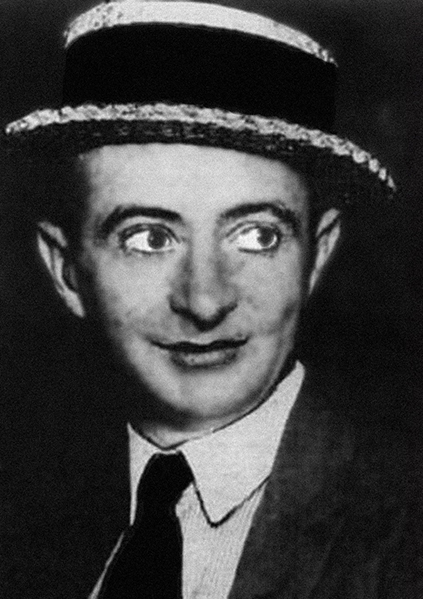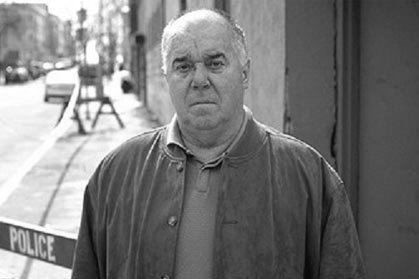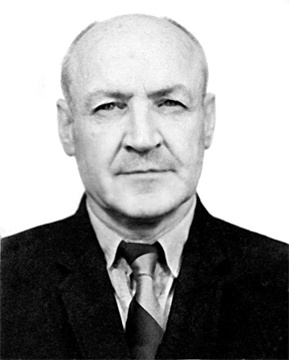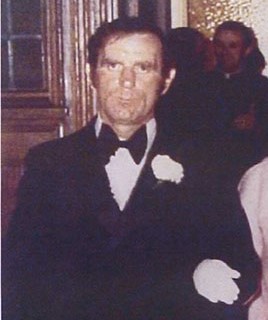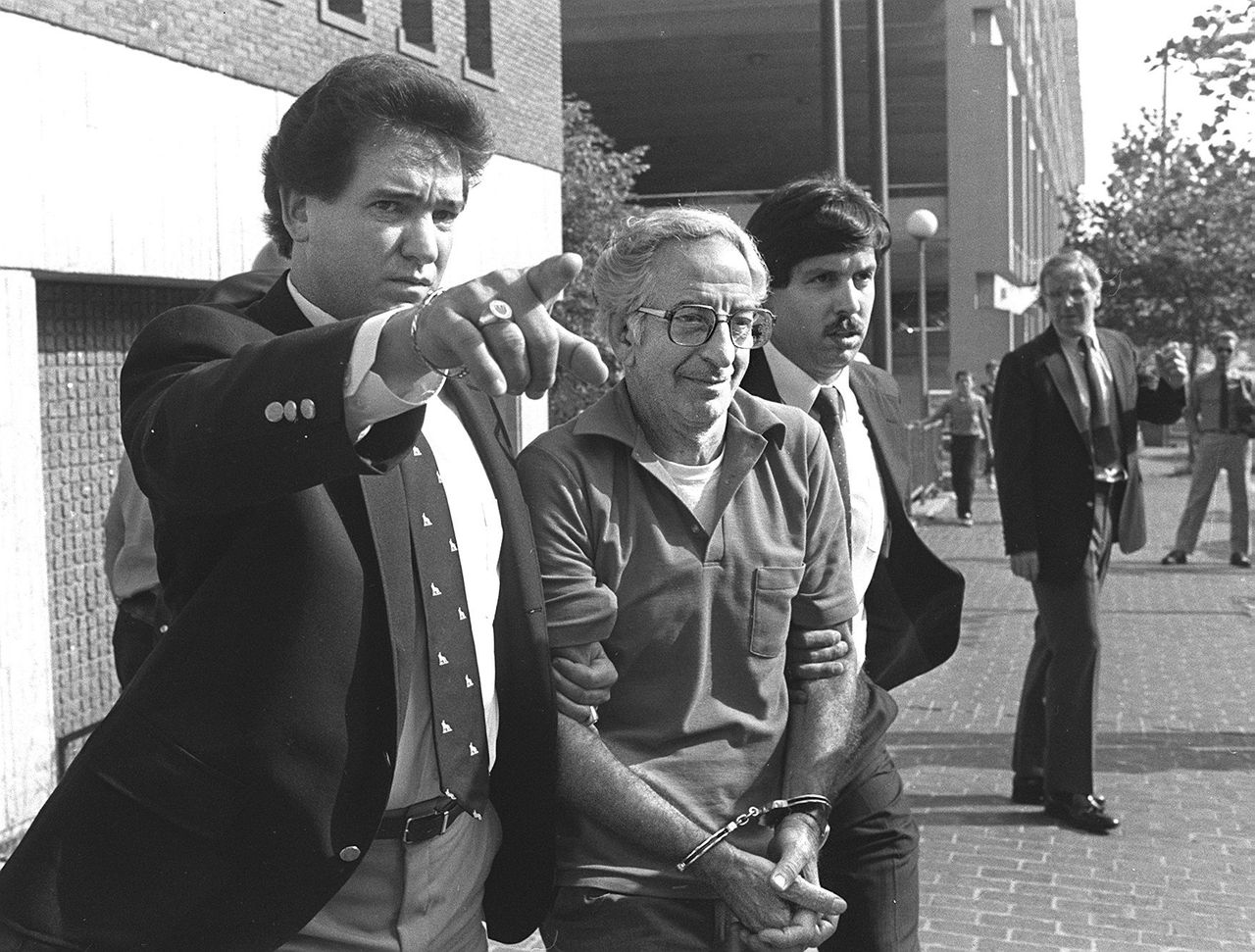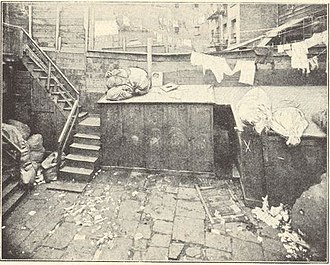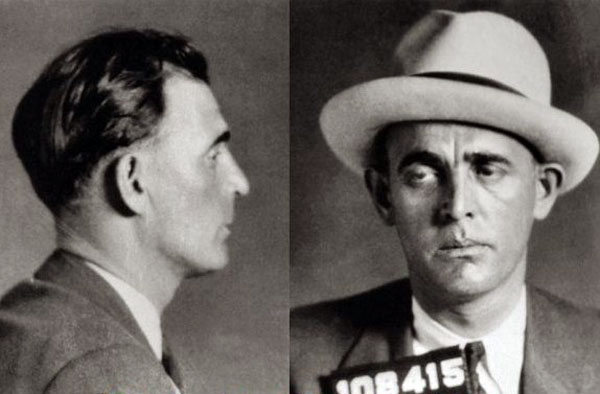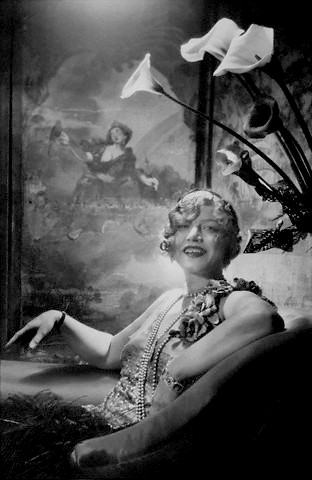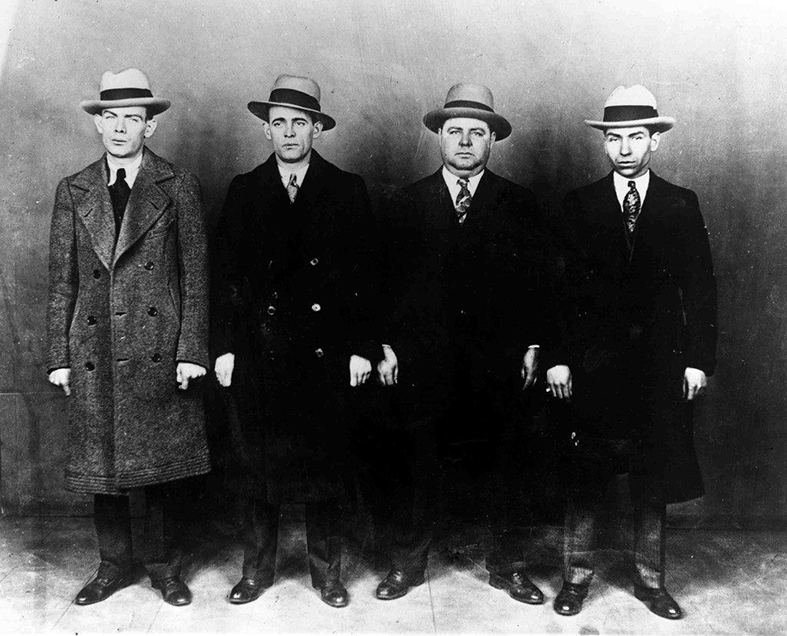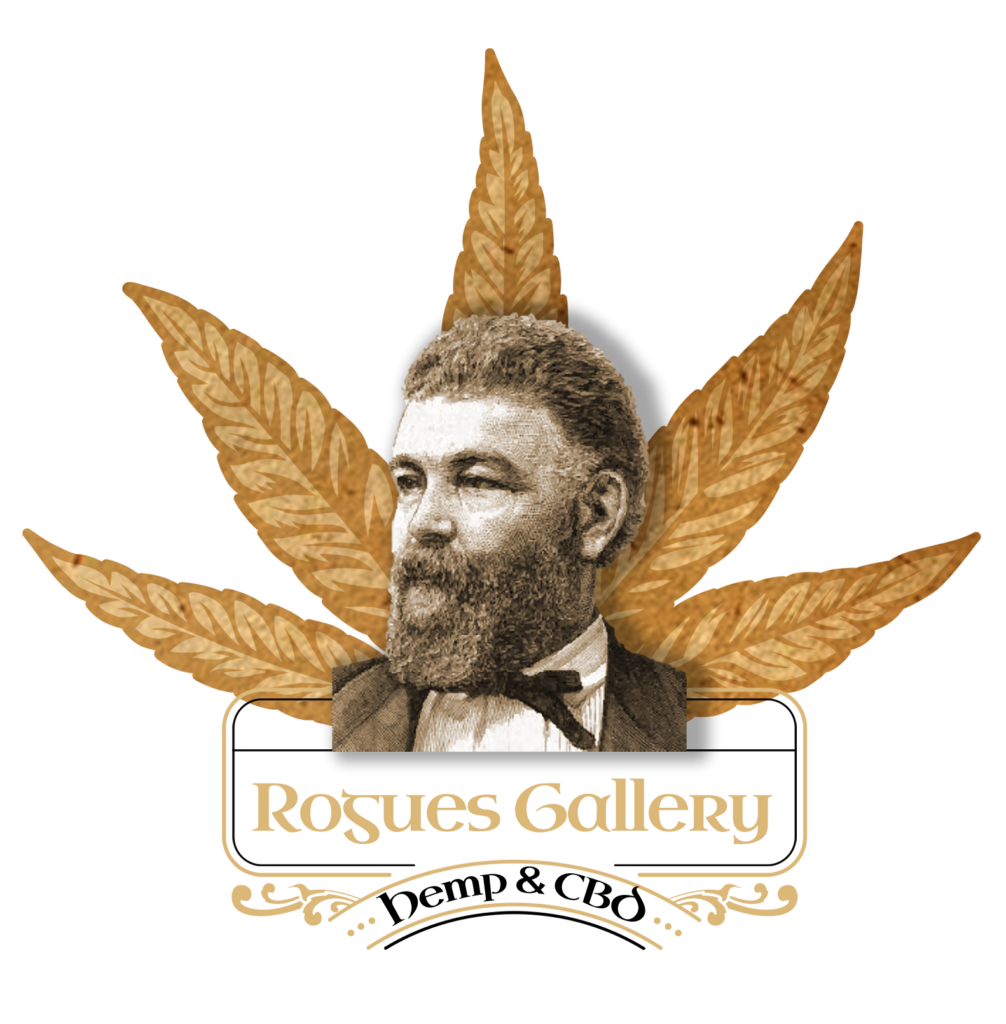William Vincent “Big Bill” Dwyer was born and raised Hell’s Kitchen, although he would avoid the temptations of quick money and the gangster lifestyle. Bill Dwyer was a hard-working young man. He finished school and then went to work for a time as an usher before finding employment as a stevedore on the Chelsea Piers. Dwyer would marry a girl from his block in Hell’s Kitchen, Agnes Frances Cassidy, and the two moved into a small four room flat and began a family together.
A close friend from his childhood, George J. Shevlin, who had originally got “Big Bill” the job on the docks and was also the owner of a string of saloons along the Chelsea Piers found himself struggling to hang on to his drinkers with the passing of the Volstead Act in 1919 and the Prohibition Laws 1920. But it soon became clear that a far more lucrative opportunity was opening up, dozens of warehouses owned by the government, packed with confiscated alcohol. A market in knocked off alcohol began as soon as the Prohibition Laws came into effect.
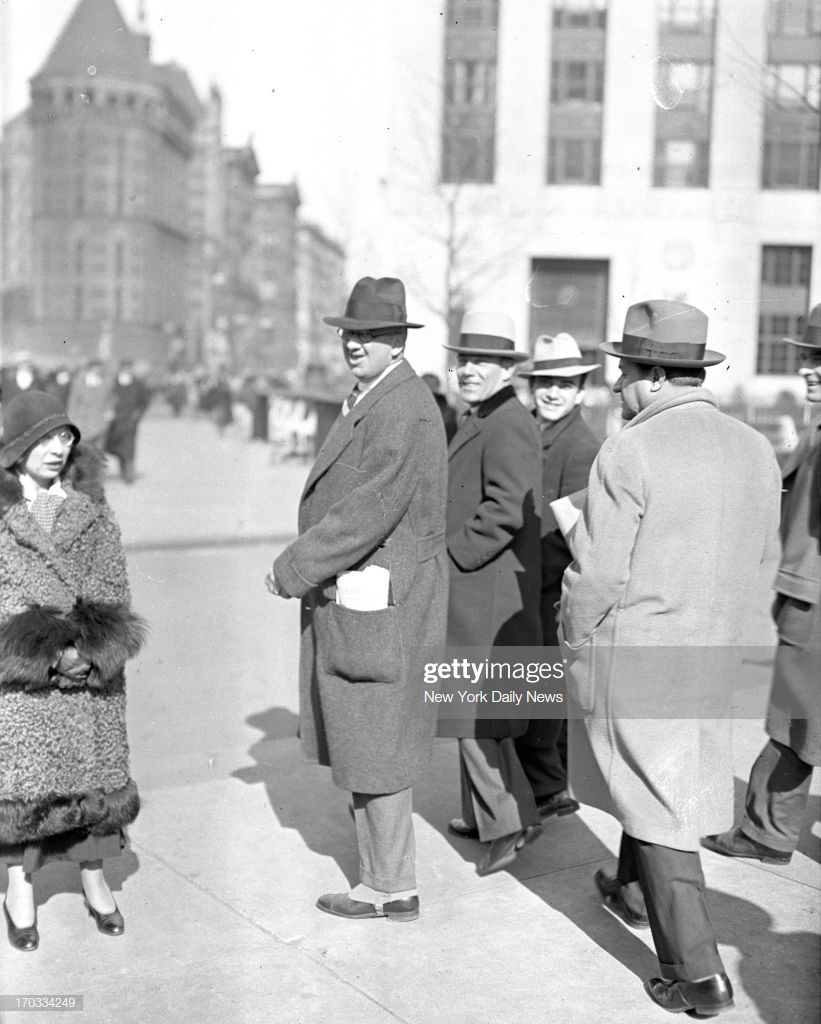
Working with a small group of longshoremen, who were all former gangsters, preying upon the warehouses. Taking the confiscated alcohol out of the storage warehouses using false permits, bribery, robbery, or burglary.
Shevlin approached Dwyer, asking him if he wanted to be partners in this new venture. Dwyer went for it. Shevlin and Dwyer pursued nonviolent ways in their attempts to get the liquor stored by the government, preferring to offer bribes and false permits to withdraw industrial alcohol, which was then sold to other bootleggers to make liquor. As the business grew they invested carefully, setting up a network of warehouses, trucks, and men to guard the lot. Dwyer & Shevlin quickly dominated bootlegging in Manhattan within a year.
With his reputation secured and his stature enhanced in the syndicate he’d created with George Shevlin, “Big Bill” Dwyer continued to develop and assumed more control over the his bootlegging operation and became recognized as its head. George Shevlin for one reason or another dropped out of bootlegging, leaving “Big Bill” in control of an expanding a multi-million dollar operation. However with all that new power, “Big Bill” Dwyer soon found himself running against the many other liquor smuggling operators in the city, struggling with them for territory, alcohol, and profits.
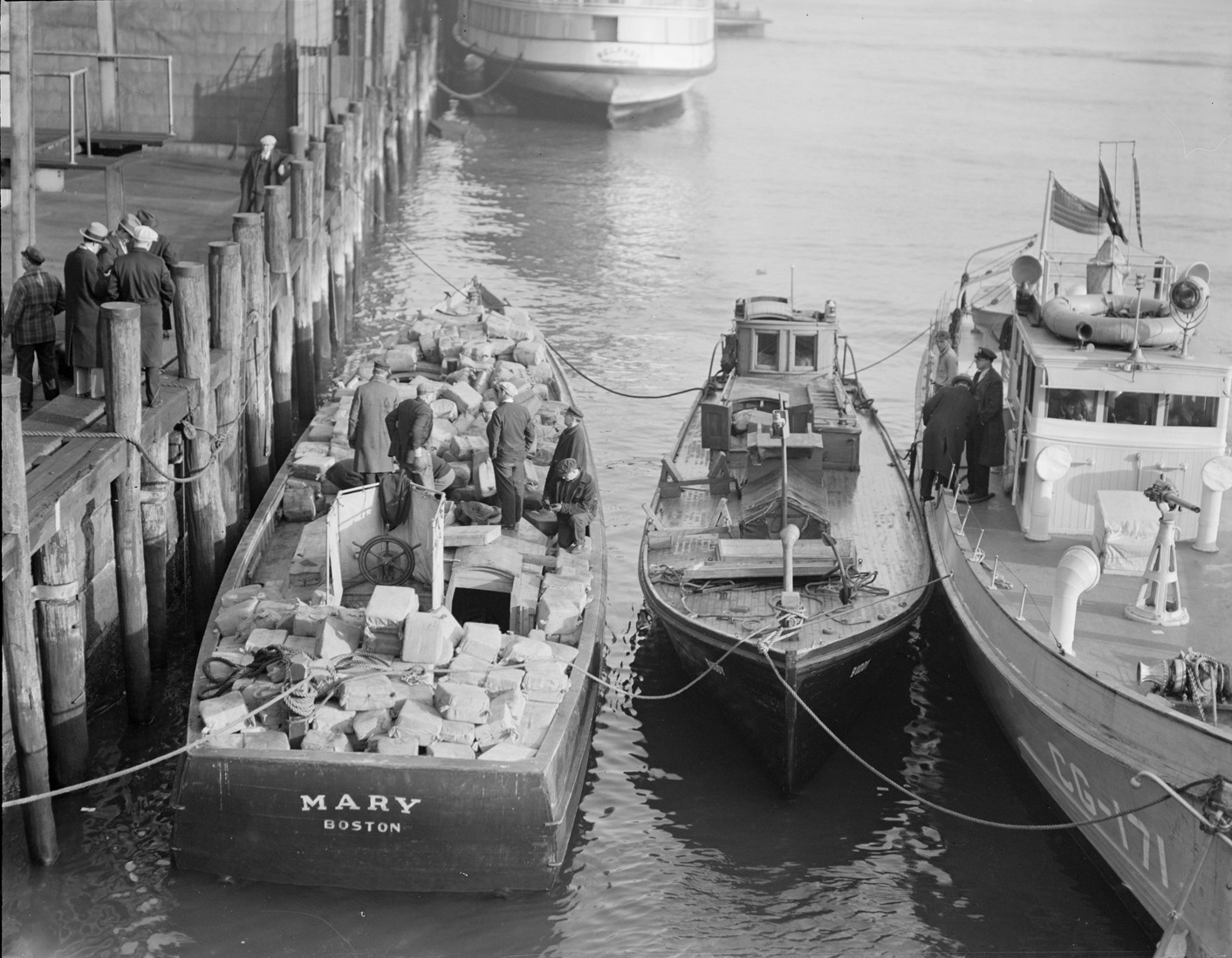
Danny Walsh Rum Runner Boats in Boston
Dwyer had organized a smuggling operation which ran from Europe directly to Manhattan. “Big Bill’s” influence became so great that he could build a web of law enforcement, police, and coast guard officers on his payroll, ensuring Dwyer’s shipments were delivered without interference.”Big Bill” also solidified his political connections to Tammany Hall through James J. Hines, Hines himself would be indicted in 1938 for protecting the Dutch Schultz mob. “Big Bill” also made a lot of connections to gangsters, to help protect his business, future gangsters such as lieutenant Vannie Higgins, who would become the last Irish Boss of Brooklyn.
In 1923 Owney “the Killer” Madden was released from a ten year sentence in prison. Known for his violence in his younger days in Hell’s Kitchen’s Gopher Gang, prison had changed Madden into a mature man capable of violence but also with a cool head and a calm demeanor. “Big Bill” Dwyer saw the potential in Madden and paid the price for his services, making Madden a partner in the bootlegging operation.


Madden established the Phoenix Cereal Beverage Co., a brewery in the heart of the West Side, filling the area with the scent of illegally produced beer, Madden’s No. 1. Protected in Dwyer’s web of political connections, they remained untouched and made more money than even they had thought possible, coming to dominate the alcohol trade in New York. In fact they would form part of the Combine’s Big Four, a group of four Irish bootleggers that also included Danny Walsh of Boston and Joseph Kennedy, father of a future president of the United States. The Combine was a forerunner to the Crime Syndicate, which was made up of the biggest Irish, Italian & Jewish bootleggers at the time.
But their success drew the unwanted attention of the authorities. In 1924, the Coast Guard, along with the negotiation of a treaty to extend the maritime borders of the United States, stepped up their efforts against bootleggers along the American coast. Dwyer began to invest in fleets of his own ships to handle the business of overseas and ship to shore transportation. The Coast Guard ships were specially equipped to halt the alcohol trade, so “Big Bill” Dwyer turned to a friend, who, purchased hundreds of airplane engines left over from the Great War and outfitted them on Dwyer’s ships, creating a fleet of ships faster than any of the Coast Guards ships.
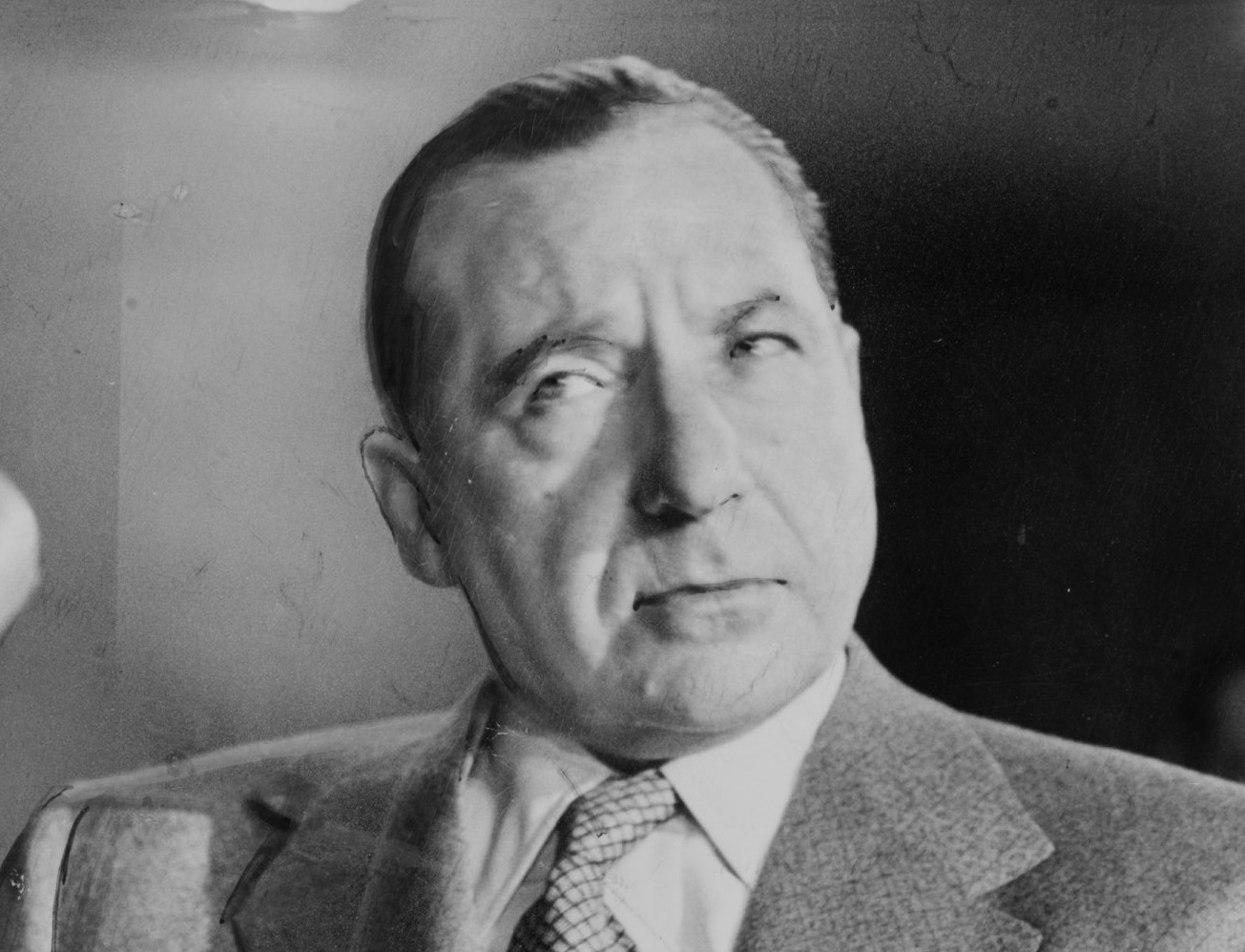
However, in 1925, “Big Bill” Dwyer was arrested for attempting to bribe members of the Coast Guard during an undercover operation by the Prohibition Bureau and was sentenced for two years. During his time in prison the operation was turned over to Owney Madden and Frank Costello, who would become head of the Genovese Crime Family later in years. After thirteen months, Dwyer was released for good behavior and once released slowly began to withdraw from bootlegging and start investing his money into legitimate businesses.
With his pockets filled with bootlegging money “Big Bill” Dwyer spent his money in the sports world including legalized gambling ventures such as casinos and bought the Tropical Park Horse Racing Track in Miami, Florida. He also bought sports teams, owning a football team and two ice hockey teams. Dwyer bought the Hamilton Tigers of the National Hockey League and he moved his team into New York’s Madison Square Garden and re-named them the New York Americans. In 1929, “Big Bill” and ex-lightweight boxing champ Benny Leonard, who Bill used as a front man, bought the NHL’s Pittsburgh Pirates. In 1930, Dwyer bought into the newly-formed National Football League too, by buying the Dayton Triangles for $2,500. Dwyer moved the team to Ebbets Field in Brooklyn, and they were renamed the Brooklyn Dodgers.

In 1935, “Big Bill” Dwyer was indicted on a gambling charge, he beat the case, but the government hit him with tax evasion charges, those charges stuck, and Dwyer was stripped of all his assets, except the New York Americans, and a house in Belle Harbor, Queens. By the end of Prohibition, “Big Bill” Dwyer had retired from bootlegging and lived with his wife and five children in Belle Harbor, Queens. He died there in 1946, aged 63, of a heart attack.
Sources:
https://in-nomine-patris.fandom.com/
https://web.archive.org/web/20080603015056/
https://web.archive.org/web/20101009083102
http://www.newenglandhistoricalsociety.com
T.J English – Paddywhacked

